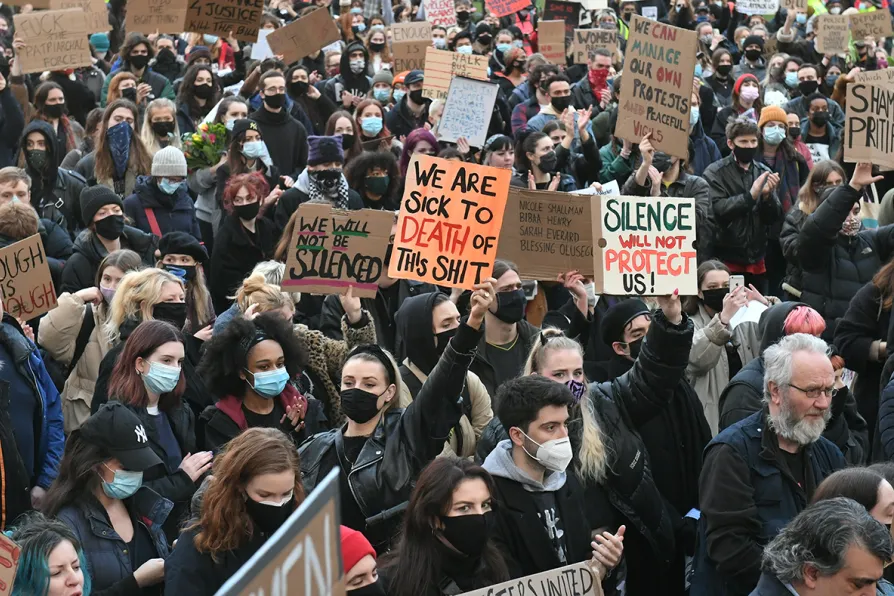Government must make ‘urgent improvements’ on efforts to tackle police violence against women and girls

 Demonstrators during a protest in Parliament Square, central London, in memory of Sarah Everard who was killed by a police officer while walking home from a friend's flat on March 3, March 15, 2021
Demonstrators during a protest in Parliament Square, central London, in memory of Sarah Everard who was killed by a police officer while walking home from a friend's flat on March 3, March 15, 2021
EFFORTS to tackle police violence against women and girls requires “urgent improvement,” the human rights watchdog warned today ahead of International Women’s Day.
The Equality and Human Rights Commission (EHRC) said there is more work for the government to do to meet targets to improve women and girls’ safety.
Last week, the inquiry into Sarah Everard’s murder by off-duty police officer Wayne Couzens found that he was a serial sexual predator who should never have been employed by the police.
Similar stories

Women’s hard-fought-for rights are facing sustained and serious ideological attack. Let this International Women’s Day be a call to arms, says Professor MARY DAVIS

There’s no room for feminists to be complacent about the growth of extremism and misogyny worldwide, warns HAILEY MAXWELL

LYNNE WALSH attempts to unravel the latest advice from local authorities on tackling violence against women and girls











